Cereal and milk. Cookies and milk. Coffee and milk. In the wise words of Forest Gump, these pairs go together like “peas and carrots.”
When you invite your vegan and lactose intolerant friends over though, these pairings can go haywire. Growing up in a Kosher home, we had similar problems. Any time we wanted to make a meat dish that called for milk, we had to pull out a dairy-free substitute to fill the void; but, not all milk alternatives are created equal.
Both fortunately and unfortunately, a dizzying array of options have popped up that go beyond the standard soy and almond substitutes. So, to separate the real deals from the wannabe milks, we taste-tested eight different varieties all available at the local Kroger. For each, we selected the “original” or “unsweetened” – for comparison’s sake.
Walnut
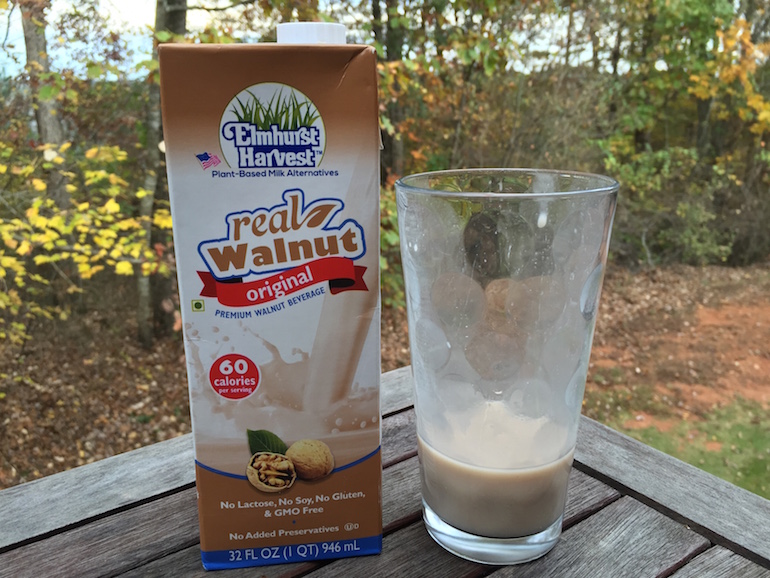
Photo by Mollie Simon
Looks are deceiving for this unique alternative. Straight out of the container, it looks slightly thick and gloopy, but what it lacks in appearance it makes up for in flavor.
Unlike most of the other competitors on this list, the walnut “drink” has a slew of additives, including sugar. Purists, cover your ears.
The result of the mix is very appealing though. It is almost like the milk version of brown sugar oatmeal. If you are looking for a milk to put in oatmeal for added creaminess, go with this. Once it’s cooked, you won’t need to add any additional flavor. Just reduce the liquid to oatmeal ratio since it is not absorbed as quickly as water.
This one also works well for baking since it brings a fall flavor to the table. If you’re a walnut lover, you might also wanna check out walnut butter too.
Rice
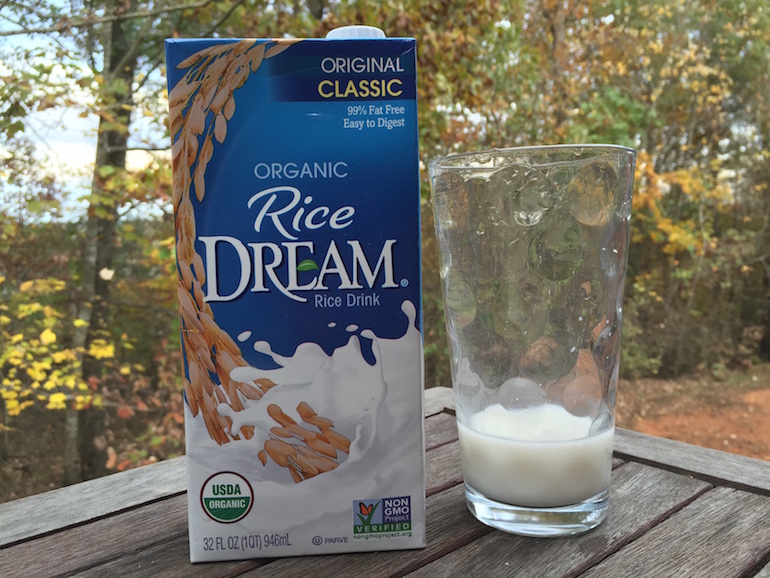
Photo by Mollie Simon
While it’s on par with milk calorie-wise, rice milk can’t compete with other substitutes on the health front at 120 calories per cup.
A little on the thin side, but mildly sweet, this won’t add or detract from the flavor of dishes. Try it in a risotto or pilaf (double the grain, double the yum, right?) to add creaminess without watering the meal down.
Coconut
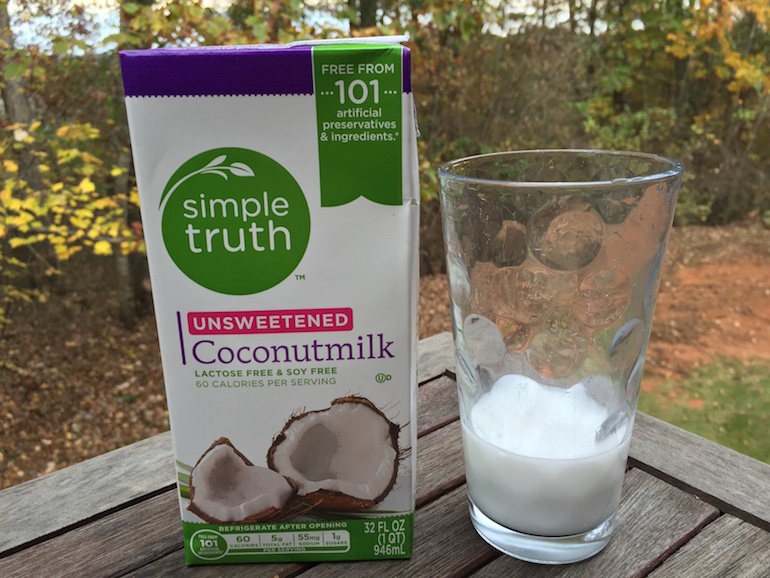
Photo by Mollie Simon
It may seem obvious, but if you are not a coconut fan, avoid this milk substitute. Unlike some of the others which only subtly resemble the flavor of their parent product, this is like drinking a cup full of coconut flakes.
With 60 calories per cup, and a slightly dry aftertaste, this is not for the unacquainted. Save this option for Samoa cookie-dipping purposes only, or if you’re making your own vegan Samoas like this.
The only silver linings here are the milky white color and resemblance in the thickness department to a glass of skim milk.
Almond
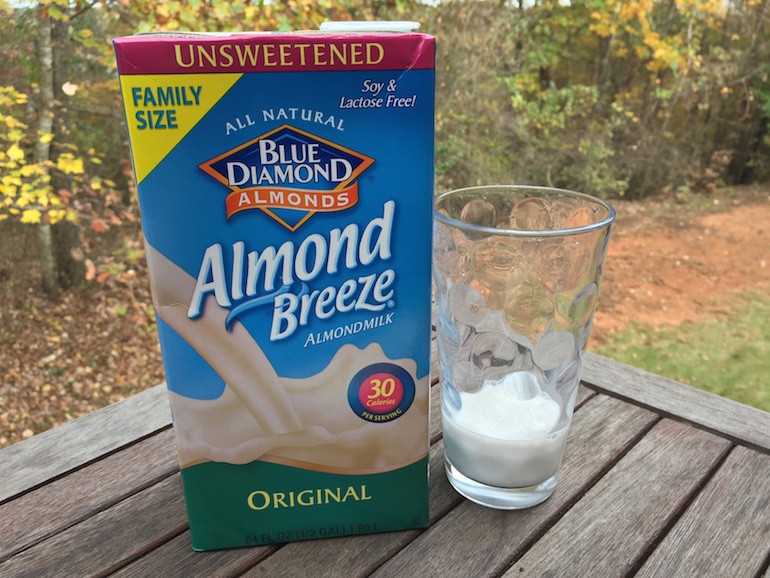
Photo by Mollie Simon
One of the cheapest and healthiest milk alternatives at only 30 calories a cup, this beverage has a consistency similar to a glass of skim milk.
There is an obvious almond aftertaste, but it does not take away from the milkiness. If it’s your first time trying a substitute, this is a safe option that won’t traumatize the tastebuds or break the bank. Or, just make your own almond milk like this.
Cashew
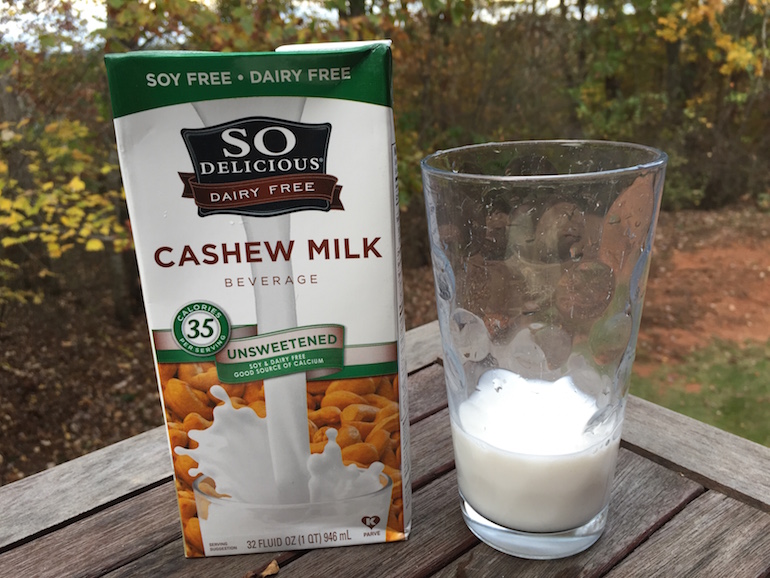
Photo by Mollie Simon
This is almost identical to almond milk in flavor, just faintly thicker. It is also a bit whiter in color than almond, which is grayer.
It comes in at 35 calories per cup, making it easily one of the healthier options, and it also leaves behind an interestingly graham-cracker like aftertaste.
For new milk-substitute drinkers, this is another pleasant option. You can also check out the scoop on cashew butter here.
Oat
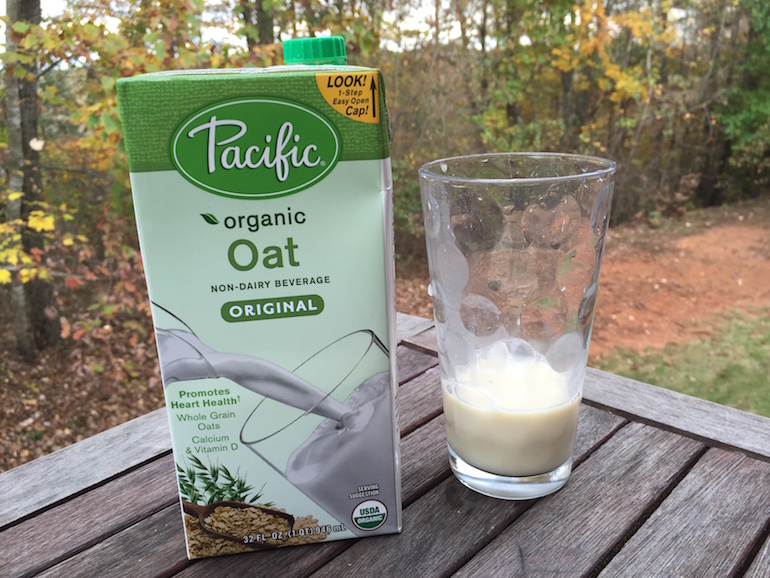
Photo by Mollie Simon
Although they don’t share an ingredients list, oat milk tastes like Wheaties in drink form. It’s a bit dry and comes in at 130 calories per cup.
If you are a post-cereal leftover milk drinker, you will like this option.
Pistachio
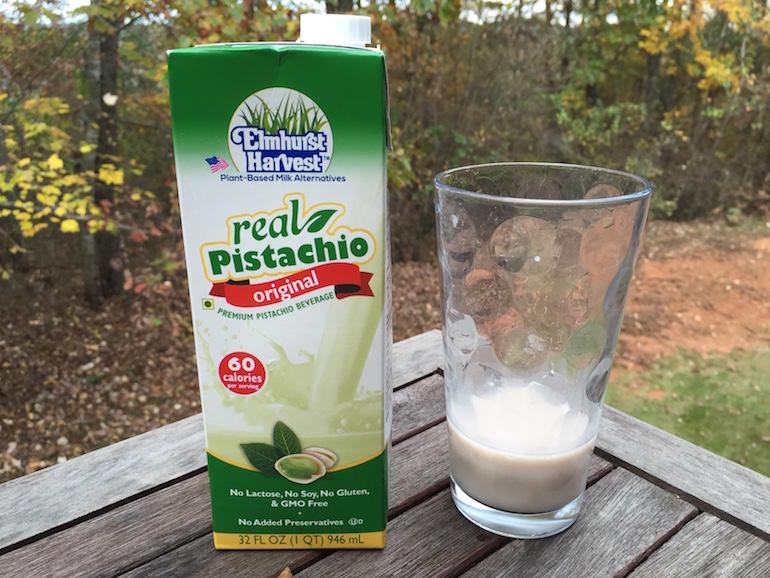
Photo by Mollie Simon
The best way to describe this is weird. I looked at it apprehensively as it neared my mouth with its thick appearance and marzipan-like smell.
If you have ever had Passover cake, this has a remarkably similar scent.
It’s a bit on the sweet side, with 60 calories per cup, and while I would not recommend it as an all-purpose milk substitute, it could boost flavor in a nutty cake recipe.
Soy
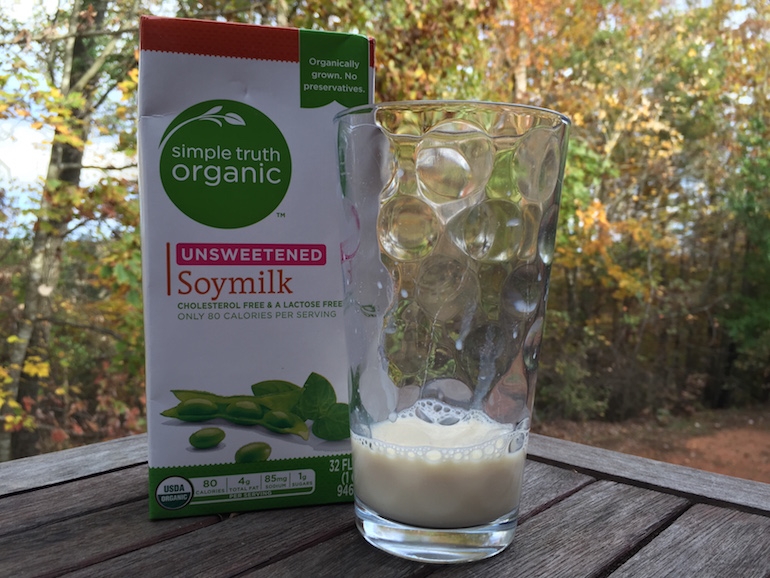
Photo by Mollie Simon
This is another classic milk alternative, and one of the mid-range health options at 80 calories per cup. It tastes lighter than milk and does not leave a strong aftertaste.
This is a versatile option for cooking as it is not likely to overwhelm other flavors. Have no fear, this is NOT molten tofu.




